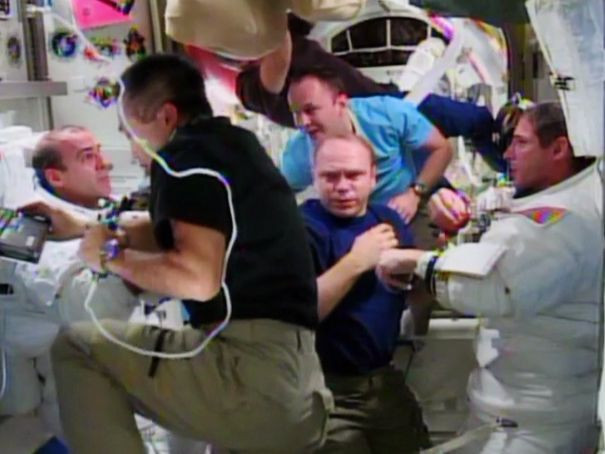Human Beings Are Not Cut Out For Life In Space: Report

A new report from the New York Times says the human body is not prepared for life in space. The challenges human beings would face in space could lead to long-term problems.
According to the report, humans “did not evolve to live in space.” The article describes what astronauts experience while in space. It quotes NASA astronaut Mark E. Kelly, who took part in four shuttle missions, and lists the problems encountered by astronauts Michael Barratt, from NASA, and Robert Thirsk, from the Canadian Space Agency, in 2009.
Barratt and Thirsk, members of the Expedition 20 crew, were scheduled to spend six months aboard the International Space Station. During the mission, they noticed they were experiencing vision problems, particularly with up-close objects. As physicians, they performed eye exams and determined possible farsightedness, and that swelling and blemishes had developed on their retinas. Based on these issues, NASA now performs eye exams prior to, during and after each ISS mission, according to the Times.
Kelly described what it feels like to be in space, saying it is like having a stuffy head and some leg atrophy. “It kind of feels like you would feel if you hung upside down for a couple of minutes,” Kelly told the Times. Other factors include loss of sleep, difficulty eating and, most important, radiation. According to the report, this increased exposure increases the risk of cancer, although studies are needed to determine how much the risk increases.
Astronauts aboard the ISS are currently performing human research experiments, including the detection of osteoporosis in space, spinal elongation, sleep patterns, cardiovascular tests, blood pressure and heart rate measurements. As noted by NASA, astronauts spend approximately two hours each day exercising to counteract bone and muscle loss.
In addition to the ongoing ISS experiments, NASA astronaut Scott Kelly and Russian cosmonaut Mikhail Kornienko will spend a year aboard the ISS in 2015 to determine the effects of a 12-month stay versus a six-month stay, the Times reported. Most astronauts spend six months aboard the ISS, although several cosmonauts have spent a year aboard the space station.
Despite the experiments and advancements in knowledge, the long-term effects of space travel are still largely unknown. All of these concerns are being raised as NASA’s focus shifts to large-scale projects after the recent announcement that the ISS mission will be extended to 2024 and President Barack Obama promised a manned mission to Mars by the 2030s.
It would take an astronaut more than two years to reach Mars and longer to understand how the long-term effects might affect the safety of the crew during the mission.
© Copyright IBTimes 2025. All rights reserved.






















